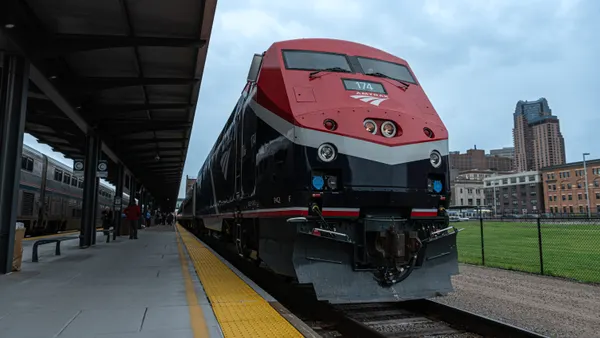Dive Brief:
- A diverse 47-member coalition from across mobility, public health, first responder and environmental advocacy groups sent a letter to Congress late last week urging it to try again on federal autonomous vehicle (AV) legislation while avoiding "potential negative impacts" on safety, congestion, pollution and land use.
- The letter, addressed to Democratic and Republican leaders on four congressional committees, calls for a "set policy that enables our country to truly harness the benefits" of AVs. It adds that signatories are "committed to working cooperatively" with elected officials.
- The group said AV legislation must prioritize safety for all road users; protect local control; provide data to consumers and local authorities; and give the National Highway Traffic Safety Administration (NHTSA) the tools and resources to oversee the technology. The letter states that in addition to those overarching recommendations, groups will share individual priorities separately as Congress considers possible legislation.
Dive Insight:
The letter comes weeks after Congress asked "automakers, safety groups and other industry stakeholders" for their input on what they hope will be a "bipartisan, bicameral" AV bill.
The Verge first reported in late July that lawmakers were trying again in this session, with the calls for a bipartisan redo being led in part by concerns that the U.S. would fall behind China and other countries in AV readiness without a national framework. U.S. Sen. John Thune, R-SD, said in February that a bill is necessary "to have the framework in place that puts the safety guardrails around the technology."
Congress made progress on AV legislation during its last session but ran out of time in the face of opposition. The House passed the Safely Ensuring Lives Future Deployment and Research in Vehicle Evolution Act (known as the SELF DRIVE Act) by voice vote in 2017.
But while the Senate’s companion legislation, the American Vision for Safer Transportation Through Advancement of Revolutionary Technologies (AV START) Act, got through its Commerce Committee, it stalled on the chamber floor, to the frustration of many on the House Energy and Commerce Committee.
The AV START Act got hamstrung primarily because of safety concerns, with the American Association of Justice (AAJ), which represents trial lawyers, mobilizing against several versions of the bill. The AAJ has signed onto this new letter, signaling potential hope that safety concerns over AVs, which still remain distrusted by the majority of the public, can be overcome in new legislation.
The lack of federal AV legislation has led to concerns about a patchwork of state laws, so the onus is on Congress to get something done. With an election year fast approaching, it may be tough to get a bill out of the political mire, but with China quickly moving ahead of the U.S. on AV deployment, leaders should be determined to get this country back on the front foot.












